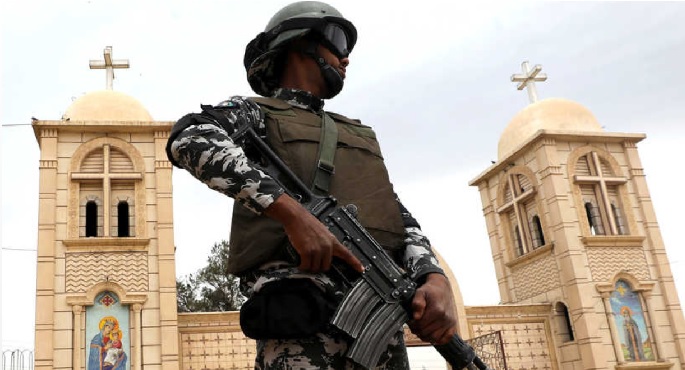
The Council of Ministers approved Jan. 8 the draft amendments to Law No. 8 of 2015, with the goal of making more effective the measures to counter terrorism and terrorism financing. The amendments involve expanding the general prosecution’s powers of freezing the assets and funds of individuals and entities affiliated with terrorist groups or activities.
While Article 7 of the law requires freezing and seizing the funds of such individuals and entities when used in a terrorist activity only, the new amendments grant the authorities the right to freeze all of the funds the defendants own. The amendments stipulate freezing the funds or other assets owned solely or jointly or controlled directly or indirectly by the individual and entity, as well as the returns generated from these properties, and the funds or assets of the individuals and entities acting on their behalf.
The new amendments also stipulate freezing the funds and other financial assets and economic resources, including oil resources, and other natural resources and properties of any kind, regardless of how the individual or entity obtained them.
This is added to the digital and electronic national or foreign currencies, securities and negotiable instruments, and all rights attached, including bank credits, checks and travelers checks, documentary credits or any interests, profits or income sources generated from these funds or assets, or any other assets that may be used to obtain financing, products or services.
The law defines as a terrorist entity any association, organization, group or gang set up for the purpose of disturbing the public order, endangering the safety, interests or security of the community, or harming national unity by any means.
Based on that, any individual believed to be disturbing the public order can be placed on the terrorist list and have his properties confiscated.
The Egyptian government believes that the amendments seek to provide a broader legal framework to identify terrorist individuals and entities, in a way to meet international standards and achieve the supreme national interest of combating terrorism.
Yet a judicial source told Mada Masr Jan. 9, that “the amendments provide a legal cover to infringe the defendant’s own money.” The source justified that “the current version of the law requires the presence of evidence on the use of funds and properties in the act of terrorism before freezing them.” Under the amendments, however, the Ministry of Interior and the general prosecution do not have to abide by such a condition, he added.
Diaa Eddine Daoud, member of the opposition 25-30 bloc, told Al-Monitor that the new amendments are unconstitutional as they contradict the texts that warn against infringing the individuals’ private properties.
Daoud explained that the ambiguous and broad definitions in the law violate the legal rule that the texts should not be ambiguous and must clearly point at the elements of the crime. This is in order to allow the judge to understand the intention of the legislator when imposing punishments on specific facts and to avoid any challenges invoking the unconstitutionality of texts with ambiguous sentences, he said.
Constitution Article 33 stipulates that the state shall protect the public, private and cooperative ownership. This is while Article 35 states that private properties shall be protected and that it is only permissible to impose guardianship thereon in the cases defined by law and by virtue of a court ruling.
Daoud added, “I do understand the motives behind the issuance of such amendments at this time, in light of the circumstances at home and in the region. [I also understand that these amendments] are needed in countering terrorism financing via their economic channels, businessmen and nonpolitical activists. Yet they are unconstitutional.”
On Dec. 1, the criminal court in Cairo added Ansar Bayt al-Maqdis to the list of terrorist entities. Also, on Dec. 16, a court decision was issued to impose a permanent seizure of the funds of more than 120 persons convicted of terrorism.
Other groups, such as the Muslim Brotherhood and Gamaa Islamiya, in addition to hundreds of associations, are labeled as terrorist in Egypt. This is added to hundreds of figures who are placed on the terrorist list, most notably Muslim Brotherhood leader Mohammed Badie, Badie’s deputy Mahmoud Ezzat and prominent businessman and Brotherhood leader Hassan Malik, in addition to anchors Muataz Mattar, Mohamed Nasser and Wagdy Ghoneim who have fled to Turkey.
Speaking to Al-Monitor, Ahmed al-Tantawi, member of the 25-30 bloc, said, “I am with everything that guarantees that the state counters terrorism fully, in terms of hunting them down in their dens. Yet I totally reject the seizure of the citizens’ properties, simply because they are charged with terrorist activities and before a final judicial ruling is issued against them.”
He noted, “One is considered innocent until proven guilty, that’s the legal rule. Then, how can the authorities seize the assets and properties of the defendants in the absence of a final ruling by the court? Is the government not aware of the impact of such measures on their families? What if the defendant was proven innocent years later? How will the state compensate for the economic and social repercussions he and his family suffered from the freeze of his assets? Such measures will help create additional terrorists.”
Nevertheless, Hafez Abu Saada, head of the Egyptian Organization for Human Rights, told Al-Monitor that the amendments are pursuant to the international standards and United Nations Security Council Resolution 1373 of 2001, which requires that states take the necessary measures to prevent the financing of terrorism.
He pointed out that Egypt is located in an especially volatile region where chaos, violence and terrorism is rampant. This requires that the state takes all measures to dry up the sources of terrorism, particularly since there are organizations that operate at home and abroad against the state, and seek to spread chaos and destabilize the country through violence and terrorism.
Currently, a state of alert is seen on the Egyptian border given the violence and divisions in neighboring Sudan and Libya.
